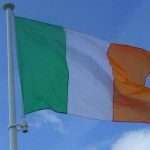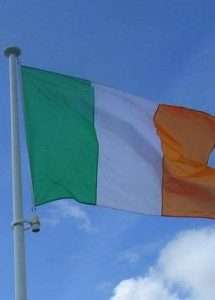An old republican
It is a couple of years since I last saw him.
Around eighty years of age, he was sitting with his collie dog in the cool shade of a redundant church building on a very warm summer’s day. He had lived in the village as long as I could remember and the thought had never occurred to me that he might have come from anywhere else.
It was a surprise to discover that he had not come from the West Country, but from the west of Co Wicklow.
“My father was an old IRA man, but he said they became gangsters. Do you know what he did? He joined the British Army. He was in North Africa during the war. He used to tell us stories of lying under his lorry to try to find shade. De Valera was useless, only did what suited him. I left in 1957.”
His father’s shift in loyalties was intriguing.
Following the Treaty with Britain, signed a hundred years ago in 1921, the conflict between supporters and opponents of the treaty that began in June 1922 was a bitter one. Michael Collins was to be the most famous victim of the war that lasted until the following year.
Whilst there are relatively detailed records of most of the losses among the pro-Treaty National Army, the casualties among the anti-Treaty forces and among the wider civilian population are still a matter of debate. In the years that followed, a small rump of republican dissidents continued with IRA activities, including the murder of justice minister Kevin O’Higgins in 1927.
When the anti-Treaty Eamon de Valera came to power in 1932, he was surrounded by former IRA men. Whilst not wishing to antagonise his colleagues, he was determined to suppress what remained of the old IRA and it was banned in 1935. Some of its men were to go to Spain to fight for the Republican cause in the Spanish Civil War, others continued as an underground movement launching a bombing campaign against Britain in January 1939.
At what point might the man’s father have decided that the moment had come to part company with the movement?
Disillusioned with de Valera, had the 1935 ban prompted him to leave the IRA. Or was it the bombing campaign against a Britain facing Nazi threats that persuaded him?
What questions might he have been asked when he went to enlist with the British army? Was it a case of a medical examination and then sign on the dotted line?
More than sixty years in the village, in a Somerset accent, the man expressed pride in the place his country had become. Might his father have thought the same?



Reading some of the military pension files is an eyeopener.
The sheer level of poverty they expose during the 20-30s is almost impossible to comprehend.
The poor left Ireland in a series of waves. First soon after 1922 to America. The second around 1927 again to America, but also to the UK. Third 1930 to the UK and onwards to Oz NZ and South Africa. The fourth, after FF got in after 1932 came during the so called Economic War. It was then farmers fired their workers but dumped and burnt produce they would’ve normally sold to the UK. The war thing was something of a cover for it also broke quite a number of FG supporters who were geared three ways to Sunday but needed the certain liquidity provided by selling to the UK market.
But JJ Lee blames James J. McElligott for most of the problems, with validity I think.
It was his management of the politicians in a profoundly conservative way that lead to austerity being the only policy move in their quiver. Even when Keynes gave them pointers they kept to the Smith thinking on economics.